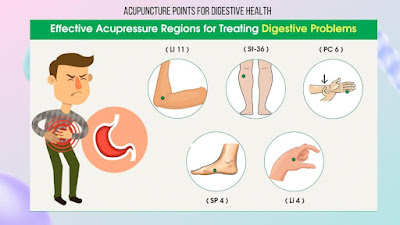The Ancient Art of Acupuncture: Balancing Key Factors for Digestive Health
Acupuncture, a traditional Chinese medical practice dating back thousands of years, continues to captivate the modern world with its holistic approach to health and well-being. While acupuncture is employed to address a wide range of issues, today, we will delve into a specific aspect of this ancient practice: Acupuncture points for digestive health. In this article, we will explore the key factors that impact acupuncture, the tradeoffs involved in balancing different factors, and the challenges associated with different approaches to digestive health. It's essential to understand that timing plays a crucial role in making informed decisions about acupuncture.
Key Factors in Acupuncture
Before we explore how acupuncture can aid in improving digestive health, let's establish an understanding of the key factors involved in this ancient practice:
1. Qi and Meridians: Central to acupuncture is the concept of Qi, the vital energy that flows through the body. Acupuncture points are located along specific pathways known as meridians. Stimulating these points can help regulate the flow of Qi and address various health issues.
2. Needles and Technique: Acupuncture involves the insertion of thin, sterile needles at specific points on the body. The technique used by trained practitioners is crucial in ensuring a safe and effective treatment.
3. Individualized Treatment: Acupuncture is highly individualized. Practitioners consider each patient's unique constitution, medical history, and current symptoms when developing a treatment plan.
Acupuncture Points for Digestive Health
Acupuncture offers a holistic approach to addressing digestive issues by targeting specific acupuncture points. These points are associated with meridians related to the stomach, spleen, and liver, among others. By stimulating these points, practitioners aim to restore balance and alleviate digestive discomfort.
1. Stomach Meridian: The Stomach Meridian includes key points for digestive health, such as ST36 (Zusanli), known for relieving indigestion and abdominal discomfort. ST25 (Tianshu) can help with constipation and diarrhea.
2. Spleen Meridian: Acupuncture points along the Spleen Meridian, like SP4 (Gongsun), are used to address conditions like bloating, nausea, and poor appetite.
3. Liver Meridian: The Liver Meridian features points like LV3 (Taichong), which can help with emotional stress-related digestive issues, such as irritable bowel syndrome (IBS).
Balancing Factors and Tradeoffs
In the pursuit of better digestive health through acupuncture, several factors must be balanced:
1. Traditional vs. Modern Medicine: Patients must consider whether to rely solely on acupuncture or combine it with conventional medical treatments. The tradeoff here is often between holistic healing and quick symptom relief.
2. Frequency and Duration: Acupuncture treatments may require multiple sessions over weeks or months. Patients need to balance the time commitment with the potential benefits.
3. Cost and Accessibility: Acupuncture may not be covered by health insurance, and costs can add up. Access to qualified practitioners can also vary by location.
Challenges in Acupuncture for Digestive Health
While acupuncture can be an effective complementary therapy for digestive issues, it is essential to acknowledge the challenges:
1. Individual Responses: Not all individuals respond the same way to acupuncture. What works for one person may not work for another.
2. Diagnosis Accuracy: Accurately diagnosing digestive issues is essential to effective treatment. This requires skill and experience on the part of the practitioner.
Timing and Acupuncture
Timing is a vital factor in decision-making regarding acupuncture. It's important to consult with a qualified acupuncturist who can provide guidance on the timing of treatments. Some digestive issues may require immediate attention, while others may benefit from a long-term approach.
Conclusion
Acupuncture offers a holistic and personalized approach to improving digestive health by targeting specific acupuncture points associated with meridians related to the stomach, spleen, and liver. However, patients must carefully consider the tradeoffs, challenges, and timing associated with acupuncture. Consulting with a qualified acupuncturist is key to making informed decisions and achieving the desired results in your journey to digestive health.

Post a Comment for "The Ancient Art of Acupuncture: Balancing Key Factors for Digestive Health"